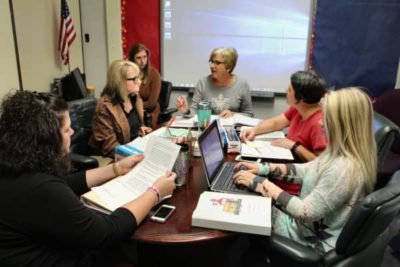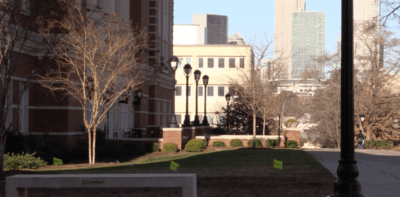In a new report, seven nonpartisan organizations in the South — including the Public School Forum of North Carolina — urge their states to take swifter action to improve K-12 education for every child with an emphasis on support for disadvantaged students.
Accelerating the Pace: The Future of Education in the American South calls for states to move faster to raise the overall quality of education. The report shows that while the South has made major advances in education in recent decades, some “achievement gaps” between more affluent students and historically disadvantaged classmates widened between 2005 and 2015. The report and complete poll results are online at www.acceleratingthepace.org.
The report and the accompanying results of The Education Poll of the South are from the Columbia Group, an informal network of organizations that work to improve education in their respective states. The Columbia Group’s members are:
- A+ Education Partnership in Alabama
- Georgia Partnership for Excellence in Education
- Prichard Committee for Academic Excellence in Kentucky
- Education’s Next Horizon in Louisiana
- Mississippi First
- Public School Forum of North Carolina
- SCORE in Tennessee
Accelerating the Pace calls for state leaders and educators to focus on four main priority areas for improvement:
- Make the South the best place to teach in the nation. Teachers and principals who have the talent, preparation and continued support they need to help students succeed.
- Provide new types of academic — and nonacademic — support for today’s students. Students need an array of support systems to help them deal with physical and emotional health issues that can impact their learning.
- Clear all students’ path from high school to their next steps in education and work. Build a much stronger bridge from high school into college, career training or a good job.
- Ensure resources are adequate and targeted. Invest in education to meet the needs of every child, and consider additional support for students who need the most help to catch up.
“North Carolina has made significant improvements in education over the last few decades, but the pace of our progress isn’t urgent enough to ensure every child has the educational opportunities they need,” said Keith Poston, President & Executive Director, Public School Forum of North Carolina. “This report indicates how North Carolina can be a trendsetter in the South by continuing along the promising path we are already on when it comes to improving our public schools. This includes adopting a new school funding model that ensures access to high quality education for all of our children; improving how we prepare and retain our best and brightest educators in the classroom; and adopting a whole child approach to learning that promotes the overall well-being of a child and considers ways to improve his or her physical and emotional health.”
The accompanying results of The Education Poll of the South show that most Southern voters of all political views and backgrounds support better educational opportunities for every child, no matter students’ background or where they live. The poll surveyed 2,200 registered voters in 12 states, from Virginia to Louisiana, and shows strong consensus for the need to improve education and on key issues that states need to address. Among the key findings:
- 74 percent of voters in the South see differences across their states in how well students are educated. Only 13 percent said all schools do an adequate job across their state. Another 13 percent didn’t know.
- 85 percent of voters in the South support “improving public schools by addressing differences in the quality of education across all schools in the state.” Only 6 percent—about one in 17 voters—opposed this idea, and 7 percent did not know.
- 84 percent support their “state improving public schools by addressing differences in funding across all public schools.” Only 8 percent oppose the idea, and 7 percent did not know.
The poll findings are from among mainstream voters across the South that roughly match the political affiliation, gender, income levels, and racial/ethnic backgrounds of registered voters in each state. Nearly three out of four voters in the survey were parents, although 40 percent had children older than school age.
Many other partner nonprofit organizations provided data and expertise for the Accelerating the Pace report, spanning different political and ideological viewpoints. These include the Southern Regional Education Board, the PIE Network, and the Southern Education Foundation.
For more information, visit www.acceleratingthepace.org or www.ncforum.org.





